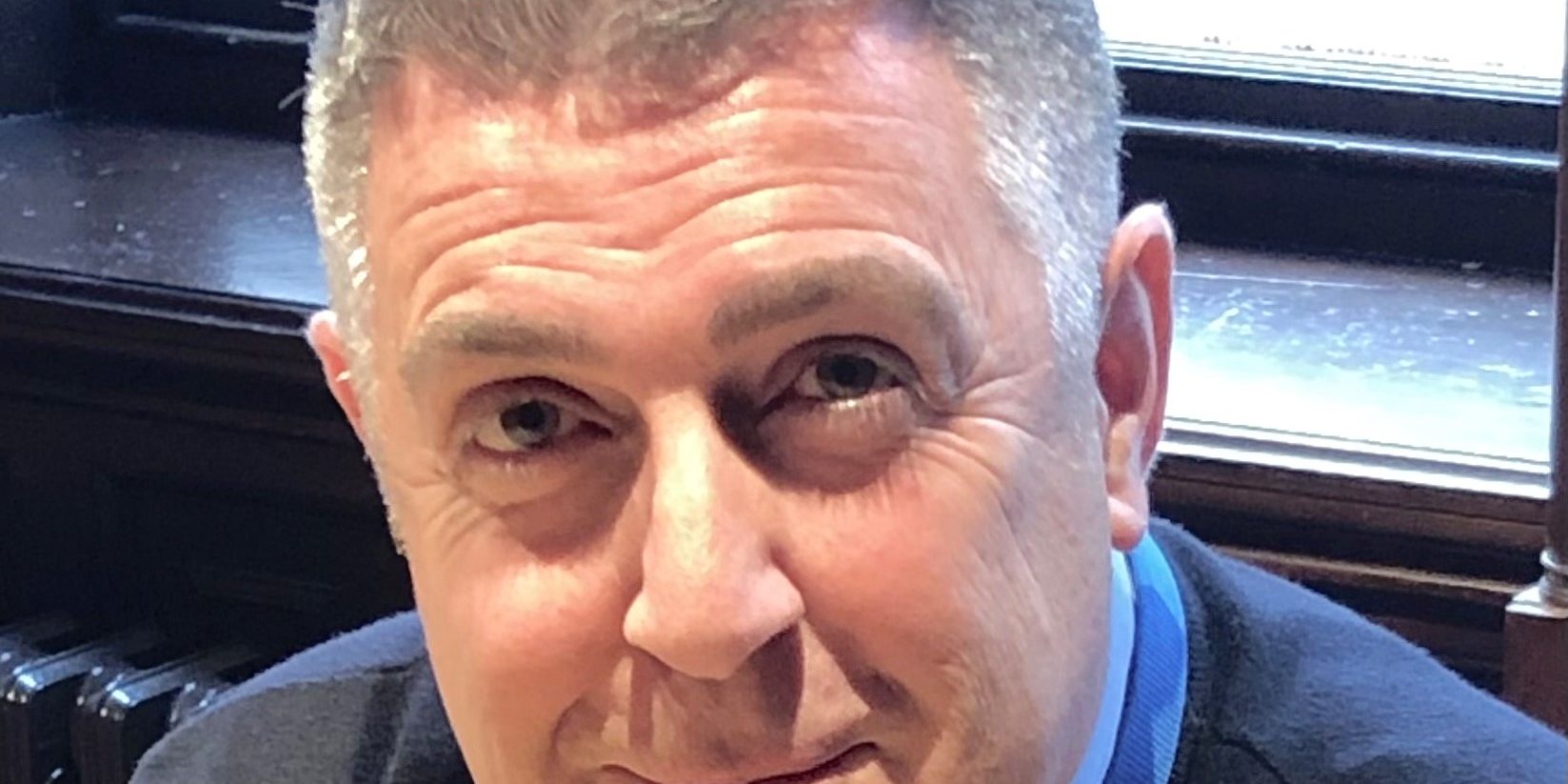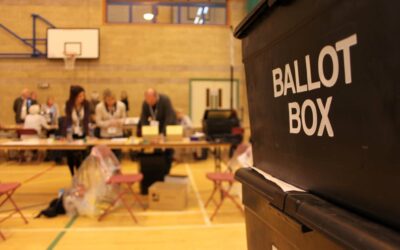In this District Councils’ Network email:
SAM CHAPMAN-ALLEN: Our departing members’ legacy will live on
MUST READS: Our round-up of media and policy highlights for district councils
LAWRENCE CONWAY: South Lakeland will be missed
NOTICEBOARD: Essential diary dates and opportunities for you and your council
DCN EXECUTIVE BOARD UPDATE: What our leaders discussed on 8 March
PLEASE SHARE THIS NEWSLETTER WIDELY ACROSS YOUR COUNCIL
 Our departing members’ legacy will live on
Our departing members’ legacy will live on
As 17 districts are abolished, the Budget reminds us that the fight for localism continues
Cllr Sam Chapman-Allen, chairman, DCN
The recent mantra of the District Councils’ Network has focused on a single word: freedom. Although this month’s Budget didn’t offer freedom, it did provide potential routes by which it may one day be obtained.
Chancellor Jeremy Hunt announced plans to sign more devolution deals, move the functions of Local Enterprise Partnerships (LEPs) into local government and to expand the local retention of business rates.
Unfortunately, the Chancellor offered no indication that district councils will be the recipients of these powers or have a leading role to play in the post-LEP landscape. In the case of business rates it is only the West Midlands and Greater Manchester which will be the current beneficiaries, as part of their enhanced devolution deals.
Let’s be clear, ‘taking back control’ is not a sentiment which is unique to our two biggest built-up areas outside London. It is equally felt across the English shires, in our market towns, our new towns, our cathedral cities, our rural areas and our coastal communities.
Our communities need devolution too, and it must not be a devolution that stops at a county town which for many places is remote – far from businesses, far from communities. If LEPs are disappearing, their powers should not be swallowed wholesale by counties; district councils offer a scale at which, to use one example, business engagement should best proceed. We are the closest to employers and we have a unique localised convening power. And with more devo deals in the offing, let us again remind ministers that no community will feel greater empowerment if it is hoarded by County Halls.
The Chancellor did offer some more immediate support. There was a much-needed extra £63m for public swimming pools (although this is a first step rather than a long-term solution), £400m to new levelling up partnerships and a call for evidence on the stymying effect of the Government’s nutrient neutrality policies on development.
We will work with the Government to make a success of these policies. But one thing is clear: district expertise must be embraced if the chancellor’s growth plan is to succeed.
District expertise has not always been embraced, as we will be reminded next week. Seventeen district councils will disappear to make way for new unitary authorities in Cumberland, Westmorland & Furness, North Yorkshire and Somerset.
We, of course, wish the new councils well. However, new county unitaries are a long, long way away from their communities. Our research with BritainThinks, published last month, demonstrated the trust that local communities place in their district councils.
Our local nature means we’re visible and approachable; our services are understood and appreciated. Giant super councils are remote and invisible.
I want to pay tribute to the tireless work of members and officers in all of the 17 districts disappearing. You have served your communities well through good times and bad; you have made an enormous contribution to both the DCN and local government more broadly.
These district councils are disappearing, but their fine legacy will be visible as their services, their innovations and the infrastructure they built live on.
MUST-READS and LISTENS Our roundup of the most important articles and broadcasts for districts
Prominent media coverage of DCN concerns about waste consistency reforms:
BBC: Bin collections: Plans to change recycling risks chaos, say councils
BBC Radio 4 Today Programme (starts at 2 hours 46mins): Cllr Sarah Nelmes interviewed on waste reform
Other issues:
LGC: DCN: Proposed planning fees increase a ‘vital step’ but concern about workloads
Paul Shevlin, Chief Executive, Craven DC, on local government reorganisation, in The MJ: This moment is bittersweet
Colin Copus, Emeritus Professor of Local Politics, De Montfort University, in LGC: Forget Oflog – local government needs an OfDevo
LGC: Leisure sector still faces ‘widespread closures’ despite extra funding
Cllr Bridget Smith, Leader, South Cambridgeshire DC, in the MJ: Why a four-day week works
Policy Exchange report on housebuilding and local growth – with foreword by District APPG Chair, Brandon Lewis MP: Homes for Growth
Localis and Housing & Finance Institute report on affordable housing: Public Rental Homes: Fresh perspectives
DCN press release on council tax increases with findings from DCN survey
Department for Levelling Up data on council tax levels set by local authorities in 2023-24: Council tax statistics
Cllr Sam Chapman-Allen, chairman, DCN, on the future of funding for district councils in Localis finance essay collection (Chapter 8): Moving Through the Gears
Northern Powerhouse Partnership report on fiscal devolution: a blueprint for devolving tax
Localis report on climate change and the planning system: Climate Resilience in Local Plans
Parliamentary debate: Ukrainian refugees and homelessness
Westminster Hall debate: Local Housing Allowance
 South Lakeland will be missed
South Lakeland will be missed
The disappearing district had a transformative impact
Lawrence Conway, chief executive, South Lakeland District Council
It’s been my privilege to serve as a district council chief executive at the heart of our community for the last 13 years. Sadly, my tenure ends next week when South Lakeland District Council is abolished to make way for the new Westmorland & Furness unitary council as part of the reorganisation of local government in Cumbria.
I view these changes with mixed emotions: whilst change can bring opportunity, for me it has been the district councils which have had the ultimate connection to their community. Parish councils have the proximity but unfortunately not the power to deliver the scale of change required in these challenging times; anything larger than a district is intrinsically more remote and potentially less well connected. It will be no surprise that the new single council will operate largely over three areas, not dissimilar to the old council geographies.
Our council, like our peers, will leave a legacy. I believe our transformative approach to service delivery is unique. It has taken bold leadership to devise a customer-focused delivery model which not only improves efficiency and effectiveness, but has also cut our costs.
The focus is on members of the public being at the heart of everything we do. South Lakeland’s model, similar to many already in existence in the private sector, means there are fewer phone calls, smaller back offices and officer time is freed up to prioritise the most demanding issues that give the biggest community benefit.
For our residents, their experience is better – the missed bin is collected sooner, there are fewer phone calls or follow-ups required; customer satisfaction levels are up; productivity and performance are up too. For our staff, they feel empowered to make a difference; they are proud that they are working more effectively and devoting more of their time to making a difference, and less on administration.
This has all resulted in a more agile and flexible council, which is better able to plan ahead and prioritise. The days of non-productive salami-slicing cuts have ended.
That said, the council has still faced its challenges, not least dealing with a number of natural events such as floods, Storm Desmond of 2015, in particular. The effects of such events are not overcome immediately and deeply affect communities for many years subsequently. Post-flooding, or storms, clean-up can take a year or more; One of Kendal’s replacement footbridges took eight years to reappear; our Town flood defence system is taking nine years to put in place. Every time it rains heavily, people still get nervous. I haven’t even the space to discuss Covid and its disruptive effect.
We have faced our setbacks and together created an environment and a place to live that is second to none. We couldn’t have done it without the support of our community over the past 49 years. To them, I say thank you.
I also wish to thank our democratically elected members for their bold leadership, which has been the catalyst for change; and our staff for appreciating why change was necessary and embracing it.
I’d also like to thank the DCN. They have been supportive to our membership and offered so many – including me – new opportunities.
Now I’m looking ahead to Westmorland & Furness taking on its statutory powers. The new council will be led by South Lakeland’s leader Cllr Jonathan Brook. They have the chance to create something new, an opportunity that should not pass by. If they put the customer at the heart of everything they do, the district legacy will live on.
NOTICEBOARD: Events, opportunities and information to help you
Ukraine webinars: The Department of Levelling Up is holding a series of webinars to highlight best practice on different aspects of support for Ukrainian refugees. The sessions cover: sponsor support on 30 March, employment support on 6 April and safeguarding on 13 April. We do not yet have the precise timings or joining details for the webinars. If your council is interested in attending any of the session, please email dcn@local.gov.uk
DCN Key messages workshops: DCN is running a short project to develop a set of key messages about the value that district councils deliver – these will underpin our comms, lobbying and research activity in the coming months. To gather views and evidence we are holding two online workshops on 30th March (11am to 12.30pm) and 31st March (11am to 12.30pm). The workshops are open to chief executives, strategic directors, heads of comms and councillors. If you’d like to take part, please email dcn@local.gov.uk
District comms group: DCN is looking for comms officers to participate in an informal comms group. To participate, please email nick.golding@local.gov.uk
Climate action scorecards Climate Emergency UK is undertaking an exercise to score councils on the strength of their action on climate change. Relevant staff and councillors should have received information on their council’s right to reply on its draft score. If your council hasn’t received this information, you are urged to click here to update contact details. Further information on the process can be found here.
DCN EXEC BOARD UPDATE What the DCN member board discussed on 8 March
The DCN Board discussed:
- Our finance and investment strategic priority
- Our health, housing and hardship strategic priority
- Influencing the design and implementation of the Office for Local Government (Oflog)
- Reflections and takeaways from the DCN annual conference
- Key messages for DCN campaigning in 2023






